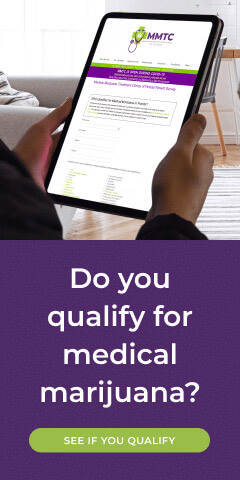Contact us at 850-518-7320 or schedule your risk-free in-person appointment today!
Schedule AppointmentNavigating the world of medical marijuana can be overwhelming, especially when it comes to understanding the documentation required. One of the most crucial steps in obtaining a medical marijuana card in Florida is presenting your medical records. These records serve as evidence of your qualifying condition and are essential for the approval process. Here's a comprehensive guide on how to request medical records to ensure a smooth journey toward your medical marijuana card.
Why Medical Records Are Essential
Medical records are more than just pieces of paper. They are a testament to your medical history and the health challenges you've faced. These records are crucial to your medical marijuana evaluation, as they provide evidence for your qualifying condition. They also help the physician understand your medical history, enabling them to make an informed decision on whether medical marijuana is right for you. Lastly, your medical records ensure both the patient and clinic operate within the legal framework set by the state.
Steps on How To Request Your Medical Records
Knowing how to request your medical records is pivotal for a smooth application process. Not only will it speed up the process, but it will also ensure you have all the necessary documentation for your records. The process may seem daunting at first, but it essentially boils down to three key steps: identifying the holder of your records, making a formal request, and safely storing them once received. Adhering to these steps ensures you have everything you need to qualify for your medical marijuana card.
Identify the Holder of Your Records
The first step in obtaining your medical records is to identify the holder of these documents. This can be your primary care physician, specialist, or any other healthcare provider you've seen for your qualifying condition. If you're unsure who has your records, contact your insurance company or previous providers for assistance.
Making a Formal Request
Once you have identified the holder of your medical records, the next step is to make a formal request. This can usually be done by filling out a simple form or sending an email. In some cases, you may need to provide additional information, such as identification or proof of your qualifying condition. It's essential to follow any specific instructions provided by the holder to prevent delays in receiving your records.
This is a step in which MMTC can help. Once you've identified the holder of your records, you can fill out this form to have us request the records on your behalf!
Review and Store Your Records Safely
After requesting and receiving your medical records, take the time to review them carefully. Ensure all relevant information, such as diagnoses, prescriptions, and treatment plans, is included. If you notice any discrepancies or missing information, contact the holder for clarification. Once you've reviewed your records, store them safely in a secure location to protect your privacy, such as a locked filing cabinet or password-protected digital file.
Overcoming Potential Hurdles
Navigating the process of requesting medical records can be challenging, but there are a few common hurdles you may encounter. For example, if your provider is no longer in practice or has closed their office, you may need to contact the medical board in your state for assistance. Additionally, some providers may charge a fee for copying and sending your records, so it's essential to inquire about the costs beforehand. The following are some obstacles you may face and ways to overcome them:
Requesting Records From Out-Of-State Providers
If you have seen a healthcare provider outside of Florida for your qualifying condition, it may be more challenging to obtain your records. In this case, you can contact the provider directly and request that they send your records to you or your current healthcare provider in Florida. You may also need proof of identity and to sign a release form. Snowbird patients with homes in Florida and another state can request a copy of their records from their out-of-state provider.
Denied Requests
In rare cases, your request for medical records may be denied. This could be due to various reasons, such as incomplete or incorrect information or the provider's inability to locate your records. If this happens, don't panic. Reach out to the provider and ask for clarification on why your request was denied. You may need to provide additional information or follow a different process to obtain your records.
Inaccurate or Incomplete Records
It's not uncommon for medical records to contain inaccuracies or be incomplete. If you notice any discrepancies, it's crucial to reach out to your provider and request they correct the information. Having accurate and complete medical records is essential for ensuring a smooth evaluation process for your medical marijuana card.
Your Florida Medical Marijuana Journey Begins With MMTCFL
If you're considering medical marijuana as a treatment option and need assistance with your medical records or any other aspect of the process, the Medical Marijuana Treatment Clinics of Florida (MMTCFL) is here to help. Our team of experts will guide you every step of the way, ensuring a seamless experience. Contact us today to start your journey towards better health. We are committed to providing compassionate and comprehensive care for all our patients.
Schedule an Appointment with MMTC Doctor
Contact us at (850) 906-5000 or click on the calendar below to schedule your risk-free in-person appointment at the MMTC location nearest you. Patients must be 21 or older.

For more appointment times and dates, click the city where your clinic is located or call 850-906-5000.





